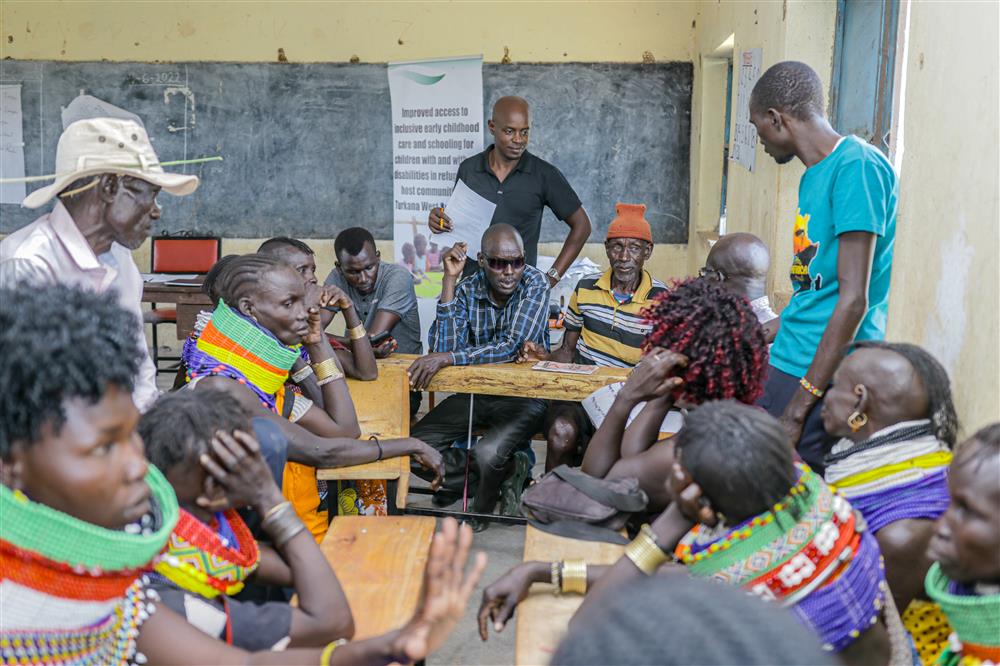Ensure inclusive early childhood care and education in refugee camps and emergencies
- Solution
- CBM Turkana Inclusive Education Project
- Country of Implementation
- Kenya
- Start Year
- 2022
- First published
- 03.12.2023

Solution details
“Our teachers are now so much more involved in engaging, identifying, and helping children with disabilities thanks to the trainings they have received through this project.” Joab Pemoe Egiron, Teacher
CBM, an international development and humanitarian organization based in Germany, in collaboration with the local NGO Waldorf Kakuma Project. They run an inclusive education-project in Turkana County for children with disabilities in refugee camps in a region that is heavily affected by drought. It links accessible renovation, adapted learning materials, training for teachers, etc. with short-term activities that address the acute nutritional needs of children with and without disabilities. Since 2021 close to 2,000 children have been supported.
Problems Targeted
In humanitarian situations generally, and in Kenya particularly, there is a lack of infrastructure and trained staff for early childhood care and inclusive education for children with disabilities.
Solution, Innovation and Impact
In Kenya’s Turkana County the number of children of school age rose to about 240,000 between 1992 and 2022 due to the influx of refugees from South Sudan. CBM, a major international development agency headquartered in Germany, launched a project in 2021 with the aim of improving the quality and sustainability of inclusive education for children with disabilities among refugees in the Kakuma Camp/Kalobeyei Settlement, located in Turkana, as well as children with disabilities in the nearby host communities. The project combines long-term inclusive education with short-term humanitarian activities that address the acute nutritional needs of children with and without disabilities. Education-related measures include accessible renovation and adaptation of facilities, provision of accessible learning materials, and sensitization of parents and caregivers. CBM and its local partner, Waldorf Kakuma Project, trained 124 teachers in primary schools, funded by KISE, a subdivision of the Ministry of Education. Teachers are also trained on the rights of children with disabilities in education and on the prevention of sexual abuse, among many other issues. The training is embedded in a variety of support measures, including peer-to-peer learning and support by governmental Education Officers.
Funding, Outlook and Transferability
The inclusive education component of the programme has a total budget of approximately €1,374,000, with 75 per cent funded by a grant from the German Ministry BMZ. The remaining 25 per cent is a grant provided by a charitable foundation, and CBM itself provides funding, meals, and nutrition. The project is implemented in close partnership with the Ministry of Education and regional DPOs. It is designed to be easily replicable in other refugee- and drought-affected areas. CBM itself has already used parts of the project model in a project in north Cameroon. (Awardee 2024)
Media
Pictures
Related information
- Connections
- 1
-
People